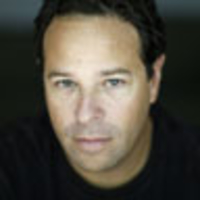History is the story that sticks. It’s what moves people, sounds authentic, true. A powerful nation can sometimes choose the place of its battles, weapons, tactics, but it cannot decide what people remember. And that’s really everything: after the struggle is over, the troops gone, the rubble cleared, only the story remains. It’s a fact that seems especially relevant now, as America disengages from Iraq and Afghanistan, muttering as we walk away. You can set time tables, fund agencies, leave trainers, but the winner will not be determined for years, and then by a storyteller we’ll have no part in choosing: it might be a historian from the War College, but more likely it will be one of the kids living in the shadow of a huge American military base, wandering through the wreckage of Kabul with open eyes. Though invisible to the soldier on patrol, this kid will determine how the struggle is remembered. It’s people you do not see, voices you cannot hear, that decide your legacy.
A century ago, United Fruit was among the most powerful corporations in the world, a great behemoth that trafficked bananas by the billions. The company was headquartered in Boston, but it had colonies throughout Central and South America, pieces of the U.S. heartland dropped in the jungle. There was a village green in each town, a schoolhouse, a golf course, and a club where the honchos played faro and stud. After 1932, this world, known as bananaland, was led by Samuel Zemurray, Sam the Banana Man, a huge, colorful Russian who started out selling overripe bananas in the markets of Mobile, Ala., and ended as powerful as a king. At United Fruit, Zemurray was a kind of corporate statesman, charged not only with making money but maintaining a tradition. U.F. had its own culture, its own history, even its own creation myth. It was the Yankee concern that went south to tame the jungle, bringing wealth to the waste places. Its mythology was captured in obscure books written early last century: Conquest of the Tropics, Empire in Green and Gold. It was the world as seen from inside the electric fence that surrounded the compounds. The streets beyond were exotic, dangerous, strange—shanties and creeper weed, the mountains marking the horizon.
In the Colombian banana town Aracataca, a boy was taking this all in: the habits of the Yankees, their inflated sense of self worth, the lie of their mythology. He was mischievous and dark haired, one of a crowd of kids whom, to the gringos, were of no more importance than the figures on the wallpaper. So here you have, as in a split-screen, two ways of life: on this side, Sam the Banana Man, going everywhere in khakis, shouting orders, cursing in five languages, making the trains run on time; on that side, in a ramshackle house up the road, Gabriel Garcia Marquz, the boy who will write the words that will change everything. It’s a great irony: in the end, the banana king and his all-powerful company, with its money and its private navy, would be defeated, in no small part, by a book, One Hundred Years of Solitude, which tells the story of the town as experienced outside the wire, which Marquez describes as “metal fences that on cool summer dawns were black with charred swallows.”

Marquez wrote a kind of bible, the story of United Fruit remade as the story of Pharaoh was remade by the scribes—the winners now the losers, and the losers the salt of the earth. In college, they call it "magical realism," but, if you know history, you understand it’s less magical than just plain real, the stuff of newspapers returned as lived experience. Everything appears in Marquez from the original banana man (“when they brought to the table the tiger-striped bunch of bananas that they were accustomed to hang in the dining room during lunch, he picked the first piece of fruit without great enthusiasm …”) to the town as it appeared after the collapse of the company (“in the swampy streets there were the remains of furniture, animal skeletons covered with red lilies, the last memories of the hordes of newcomers who had fled [the town] as wildly as they had arrived.”)
A company, like a nation, cannot survive without its mythology—and that’s what Marquez and others like Pablo Neruda attacked. It’s from them that we get a sense of U.F. as El Pulpo, the octopus with its tentacles wrapped around everything. In the end, the gringo company was forced to see itself as it was seen. By the 1970s, U.F. had pulled out of South America—it was too difficult to operate. Years later, weighed down by its image, the company changed its name to Chiquita Brands, after its mascot—like Nike changing it name to Swoosh.
One Hundred Years of Solitude turns hallucinatory at the end, a great storm driving the buildings and streets back into the earth, making the land as it had been before the first conquistador knelt by the Atlantic. “He tried to reconstruct in his imagination the annihilated splendor of the old banana company town,” writes Marquez, “whose dry swimming pool was filled to the brim with rotting men’s and women’s shoes, and in the houses of which, destroyed by rye grass, he found the skeleton of a German shepherd dog still tied to a ring by a steel chain and a telephone that was ringing, ringing, until he picked it up and an anguished and distant women spoke in English, and he said yes, that the strike was over, that three thousand dead people had been thrown into the sea, that the banana company had left, and that [the town] finally had peace after many years.”
In the end, history is written not by the winners, but those who remain when the armies have gone.






